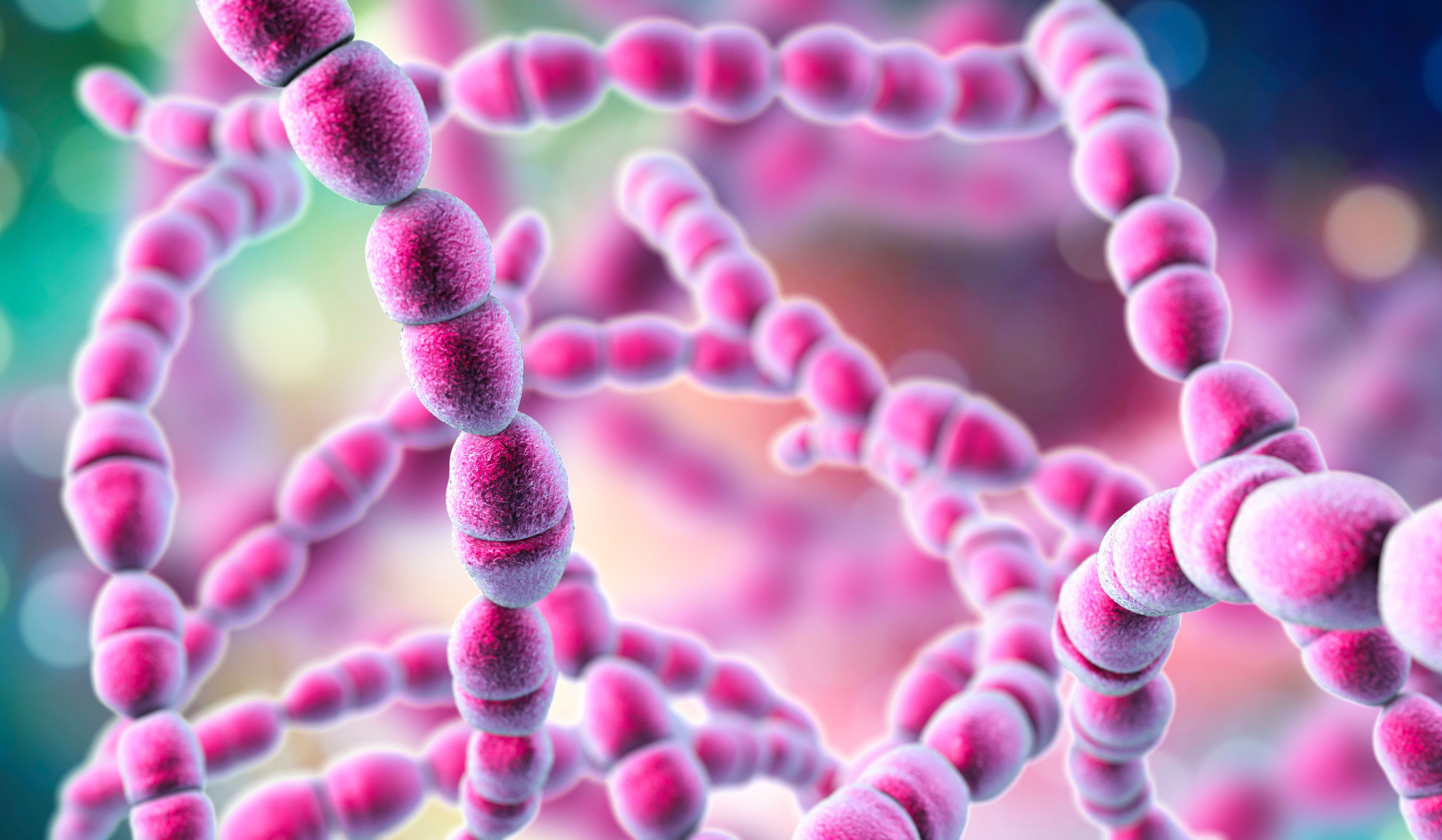News
Article
Group B Streptococcus Vaccine Shows Promise in Phase 2 Study
Author(s):
Study shows maternal vaccination with Pfizer’s hexavalent capsular polysaccharide conjugate vaccine may protect infants against Group B Streptococcus.
Pfizer Inc. has announced positive findings from a phase 2 study that analyzed its hexavalent capsular polysaccharide (CPS) conjugate of the Group B Streptococcus (GBS) vaccine. GBS is a form of bacteria that can cause harmful diseases in infants in the first 3 months of life. Some of these diseases include sepsis, pneumonia, and meningitis. Approximately 1 in 4 pregnant individuals carry GBS and may pass the bacteria to their infant before childbirth, according to Pfizer.
Image credit: Dr_Microbe - stock.adobe.com

“Annually, there are nearly 400,000 cases of infant disease and approximately 138,000 stillbirths and infant deaths worldwide due to GBS,” said Annaliesa Anderson, PhD, senior vice president and chief scientific officer at vaccine research and development from Pfizer, said in a press release.
The researchers evaluated CPS and a genetically detoxified diphtheria toxin cross reactive material (CRM) to develop 197 glycoconjugate (GBS6) to protect infants against the disease. The study was divided into 3 stages, with stage 1 focused on studying the safety and immunogenicity of 66 healthy individuals in South Africa who were not pregnant, based on a parallel natural history study conducted in South Africa.
Stage 2 focused on The New England Journal of Medicine’s (NEJM) publication that assessed the safety and immunogenicity in 360 healthy pregnant individuals and their infants. The individuals ranged in age from 18-40 years, resided in South Africa, and were administered a random, single dose of GBS6, prepared at 5, 10, or 20 µg/serotype. This was given with or without an AlPO4 adjuvantor placebo during the later side of the second trimester. Stage 3 focused on evaluating 216 healthy individuals who were pregnant, residing in South Africa, the United States, and the UK.
Pfizer stated that in stage 2, the groups who received the vaccine versus the placebo had similar reactions regarding the safety in both the mothers and infants. The study showed that 2%-8% of the individuals who received the GBS6 vaccine reported a fever, compared with 5% administered the placebo. Further, 45%-70% of pregnant individuals reported adverse effects (AE) from GBS6 that were dependent on the dose compared with 61% with the placebo; however, between both groups, the most common AEs were related to pregnancy.
Despite the AEs, stage 2 of the GBS6 vaccine provided maternal antibodies to fight the GBS CPS serotypes. The antibodies in the vaccine were subsequently transferred to the infants to fight off the bacteria produced by GBS.
“The findings published in NEJM provide hope that maternal vaccination with GBS6 may protect infants against GBS, potentially helping to prevent thousands of cases of illness annually, if it is successfully developed and approved. Building on decades of expertise and knowledge in vaccines, we are committed to helping protect newborns and young infants through maternal immunization,” Anderson said in the release.
The findings suggest that the GBS6 vaccine could protect infants from being affected by the GBS disease, based on evidence expanded from the NEJM study, according to the investigators.
Reference
Pfizer Announces New England Journal of Medicine Publication on Group B Streptococcus (GBS) Maternal Vaccine Candidate. Pfizer. News release. July 19, 2023. Accessed July 28, 2023. https://www.pfizer.com/news/press-release/press-release-detail/pfizer-announces-new-england-journal-medicine-publication
Newsletter
Stay informed on drug updates, treatment guidelines, and pharmacy practice trends—subscribe to Pharmacy Times for weekly clinical insights.





